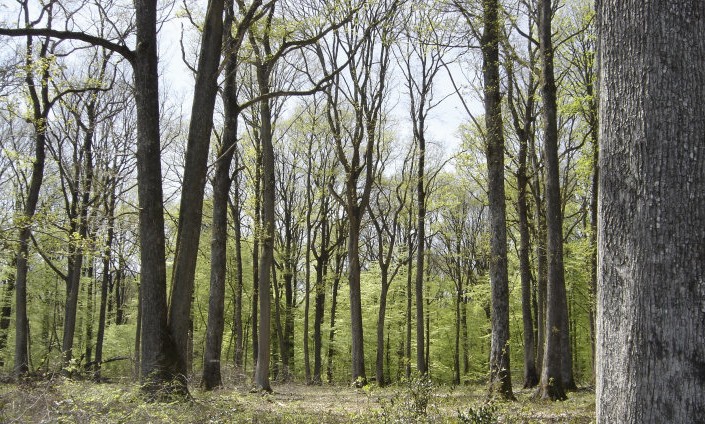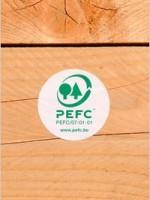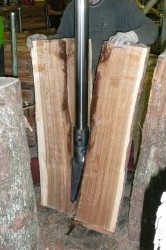
If you are a wine producer practicing sustainability, using barrels that are from PEFC-certified forests should be a must. The Programme for the Endorsement of Forest Certification (PEFC) is an international non-profit, non-governmental organization dedicated to promoting Sustainable Forest Management (SFM) through independent third-party certification.
 There are different certifications for different types of businesses. A forest gets PEFC-certified; a cooperage gets a “Chain of Custody” certification (through PEFC). A Chain of Custody certification ensures that the wood used in a cooperage’s barrels (and tanks) originates from PEFC-certified forests. When a cooperage says it is PEFC-certified, it is referring to this Chain of Custody certification.
There are different certifications for different types of businesses. A forest gets PEFC-certified; a cooperage gets a “Chain of Custody” certification (through PEFC). A Chain of Custody certification ensures that the wood used in a cooperage’s barrels (and tanks) originates from PEFC-certified forests. When a cooperage says it is PEFC-certified, it is referring to this Chain of Custody certification.
Sustainability is an important practice for the cooperage industry. Here’s why:
- In Europe, trees should be approximately 150 years old before they are harvested for barrel production. In North America, they need to be about 60 years old. If we harvest the trees too quickly, the older trees won’t be available when we need them.
 French oak requires the splitting of logs rather than sawing, which results in only about 30% of a tree being suitable for barrel production. American oak can be sawed, therefore 40-45 % of the tree is suitable for barrels (Wine Business Monthly, May 2006). Wood purchasers need to do their part in making sure the additional wood is not wasted (selling to pallet producers, etc.).
French oak requires the splitting of logs rather than sawing, which results in only about 30% of a tree being suitable for barrel production. American oak can be sawed, therefore 40-45 % of the tree is suitable for barrels (Wine Business Monthly, May 2006). Wood purchasers need to do their part in making sure the additional wood is not wasted (selling to pallet producers, etc.).
- Twelve to fifteen million hectares of forest are lost each year to deforestation, the equivalent of 36 football fields per minute (World Wildlife Fund). Forest degradation and deforestation result in serious negative impacts for forest biodiversity, which affects the species as well as complex communities of plants, animals, insects and microorganisms.
The specific criteria for PEFC certification is customized for each country and region, but these are some general guidelines:
- Native species are favored in reforestation and afforestation efforts
- Forest managers ensure that key biotopes are protected, harvest levels and forest productivity are balanced and degraded forest ecosystems are rehabilitated
- GMO materials are excluded for certification
- Chemicals such as pesticides and herbicides be substituted by natural alternatives or minimized
“Traceability” seems to be a buzzword with cooperages these days. It means the cooperage can track the life of a barrel from its origins through production. This is usually done by tagging logs, stave batches and barrels with serial numbers. A cooperage will use a third-party company to verify PEFC compliance as well as wood origin and seasoning. Ask your barrel suppliers about their traceability so you can confirm their adherence to standards that are important to you.
If you’d like to confirm that the cooperages you work with have PEFC certification, you can search for a company on the PEFC website here. You might even be able to get them to put the PEFC logo on your barrels if it’s important to you.
Side note: Seguin Moreau’s has recently introduced “carbon neutral” barrels. Good for the environment and good for marketing. Details are on their website.
I hope this was helpful. I am assuming most of the top cooperages have PEFC certification. Have you found that it’s common with your suppliers? How open are your suppliers about their sustainability practices?